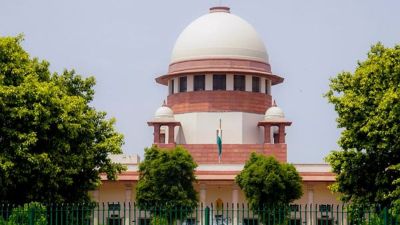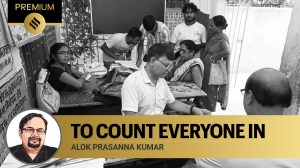Rising cases of hypertension reported in Chandigarh: data indicates 50% of residents over 45 years have high BP
Viewed as a silent killer due to its lack of symptoms, consistently elevated blood pressure is one of the major causes of premature deaths across the world.
 According to health experts, most people are unaware that they have high blood pressure, and tend to ignore the symptoms which could prove detrimental. (File/ Representational Image)
According to health experts, most people are unaware that they have high blood pressure, and tend to ignore the symptoms which could prove detrimental. (File/ Representational Image)High blood pressure or hypertension is emerging as a rising issue among residents of Chandigarh alongside diabetes which has been viewed as the chief concern among Non-Communicable Diseases (NCD) in recent years. According to health experts, most people are unaware that they have high blood pressure, and tend to ignore the symptoms which could prove detrimental.
Chandigarh Health Secretary Ajay Chagti, who was part of the foundation day celebrations of the World NCD Federation last week at the Postgraduate Institute of Medical Education and Research, often referred to as PGI, said 35.5 per cent of the adults in the Union territory have high blood pressure, which is more than the national average, and NCD risk factor data has shown that 50 per cent of people above 45 years currently suffer from high BP.
The PGI School of Public Health has been working extensively on the prevention of non-communicable diseases in the region for the last several years. For this, the department maintains data on all diseases so that new initiatives and projects can be started for preventive measures.
Viewed as a silent killer due to its lack of symptoms, consistently elevated blood pressure is one of the major causes of premature deaths across the world, and can lead to stroke, heart attacks, heart failure, kidney damage and many other health issues, according to doctors.
Excessive salt intake a factor
Dr Ashok Yadav, Associate Professor of Experimental Medicine and Biotechnology at PGI, Chandigarh, said World Health Organization (WHO) guidelines recommend a daily dietary sodium intake of 2 grams (corresponding to 5 grams of salt), but 65 per cent of people consume 8 grams daily. Excessive salt consumption is believed to be a significant trigger of hypertension.
As sodium levels go up, the body holds onto water to dilute it. This increases both the amount of fluid surrounding the cells and the volume of blood. Increased blood volume means more work for the heart, leading to high blood pressure, heart attack, and stroke. This is why cardiologists advise patients to avoid salt-rich food, pickles, sauces, canned soups, processed cheese, frozen meals and, most importantly, table salt.
“Blood pressure must be maintained under 140/90 mmHg. Those with diabetes and renal failure should have strict control of blood pressure. Low salt intake, appropriate body weight maintenance and medications control high blood pressure,” said Professor Dr Rajesh Vijayvergiya, Department of Cardiology, PGI, Chandigarh.
Diet clinics at PGI, Chandigarh
The Department of Dietetics, PGI, is organising special diet clinics to sensitise people about uncontrolled high blood pressure and its repercussions on kidney health, besides advising them on dietary management.
Chief Dietician Dr Nancy Sahni underlined the role of proper hydration, appropriate salt, fruits and vegetable intake and a balanced diet in controlling hypertension. The clinic recently analysed 60 responses received to its survey on diet and nutrition and found that the respondents, whose mean age was 54 years, reported taking their medications irregularly, attributing it to various factors like being unconvinced that BP requires medication (48.6%) and forgetfulness (14.3%). Many (31.4%) stopped medication as they felt their BP returned to normal.







